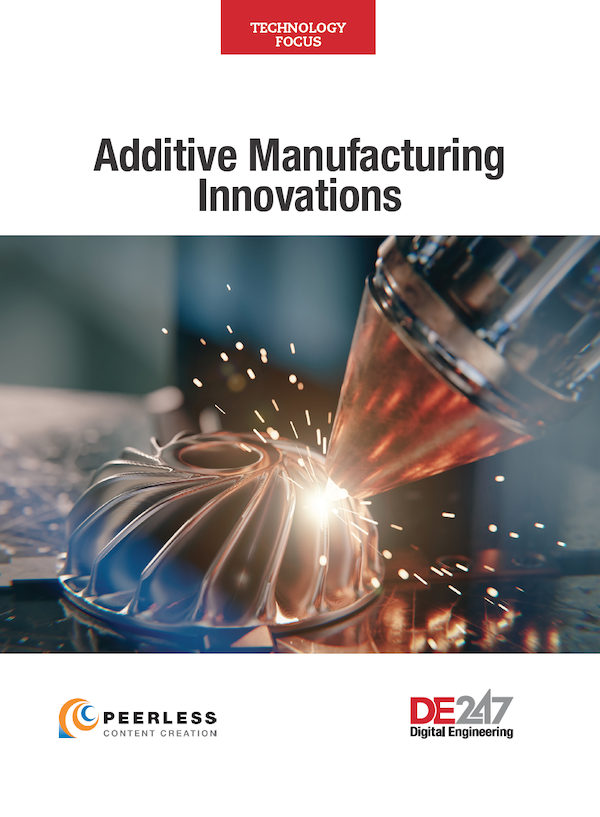CoreTechnologie Releases 4D_Additive v1.6
This new nesting function is said to deliver higher efficiency while maintaining user friendliness.

Exact CAD model (left) and the voxelised approach (right), which ensures efficient nesting, the company reports. Image courtesy of CoreTechnologie GmbH.
Latest News
July 1, 2024
The Franco-German software developer, CoreTechnologie, has optimized the nesting module of its 4D_Additive 1.6 software for the automatic placement of parts in the virtual build space of a 3D printer. This new nesting function is said to deliver higher efficiency while maintaining user friendliness.
High Efficiency
Thanks to intelligent pre-sorting of the parts to be nested and improved calculation accuracy, the new version of the 4D_Additive software now achieves notable packing densities. The increased packing density and lower overall height lead to shorter machine running and cooling times.
To avoid heat pockets and to achieve optimum surface quality, it is important that the nested parts are optimally distributed. After the actual nesting, an automatic optimisation process takes place, which ensures that heat pockets are avoided by slightly rearranging the components in the X, Y and Z direction. The lowest height achieved during nesting is also maintained during heat optimization.
Optimized Nesting
Thanks to the new nesting function, large parts can now be nested more precisely and will be optimally distributed in terms of use of the available space. Gaps between the big parts can then be efficiently used for the smaller parts. As the new nesting technology enables high packing densities, a limiting parameter can be used to limit the maximum packing density and temperature development.
A printing process with the HP MJF 4200 printer with a build height of 380 millimeters and 16 hours is nested with a reduced build height of 283 mm instead of 357 mm thanks to the new nesting function. With the 1.6 version, the overall height is reduced by 74 mm and the resulting printing time is reduced by 3 hours. The packing density increases from 8% to just over 10% and the duration of the nesting process is reduced from 8 to 3.5 minutes. With 250 production days per year per machine, an increase in efficiency or reduction in running time of 3 hours results in additional productivity of around 750 hours. The reduced cooling time resulting from the shorter printing time potentially saves up to an additional 9 hours.
Further information on the software is available at www.coretechnologie.com/products/4d-additive.
Sources: Press materials received from the company and additional information gleaned from the company’s website.
More CoreTechnologie Coverage
Subscribe to our FREE magazine, FREE email newsletters or both!
Latest News
About the Author
DE’s editors contribute news and new product announcements to Digital Engineering.
Press releases may be sent to them via DE-Editors@digitaleng.news.






